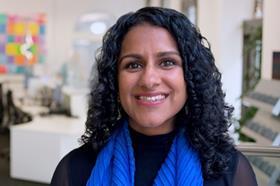The terms diversity, equity and inclusion have become embedded across the legal profession. But despite huge efforts to move the dial on equality, significant challenges remain.


In December 2022, as the Law Society celebrated the centenary of the first four women solicitors to be admitted to the profession, the president, Lubna Shuja, reminded us that while 60% of new admissions are women, only 35% of law firm partners are women, representing an advance of only 0.3% in a decade. In addition, the numbers of women leaving the profession are significant. Thomson Reuters, following its Women Leaving Law survey in 2022, reported that 90% of the women surveyed cited workplace culture as the main reason for quitting, with 82% blaming lack of flexibility and work/life balance and 74% pointing to lack of career trajectory. These statistics demonstrate unequal outcomes on the pay, retention and promotion of women solicitors.
Acknowledging inequity
Equality seeks to ensure that every individual has equality of opportunity. But the concept of equity acknowledges that we don’t all start from the same place, have the same needs, or follow the same journey.
To truly embrace equity in the legal profession, we need to begin with the notion that when it comes to gender, many women don’t tread the same path as men in the profession. And when other personal characteristics, such as ethnicity, disability or sexual orientation are involved, the journey involves navigating a different path yet again. The career journey is different, and there isn’t always a level playing field.
Women in Law Pledge
To help combat this, in June 2019 the Law Society created the Women in Law Pledge in partnership with the Bar Council and Chartered Institute of Legal Executives (CILEx). The pledge was designed to put gender equality at the top of the agenda for our profession. For the pledge to create the widespread systemic change that is so urgently needed, we need more firms to sign up.
The pledge contains eight straightforward actions which all legal service providers and in-house teams – small and large, regional and international – can commit to. Obvious, but currently unfulfilled, measures such as committing at senior level to tackling sex discrimination can make a real difference to gender equality in the profession.
Given that women are not proportionately represented in senior leadership roles in the industry, firms need to set targets. The pledge is an integral part of this as it provides a transparent approach. However, many in the profession are still reluctant to discuss targets as a way forward, as it supposedly undermines a meritocratic approach. We need leaders across our profession to acknowledge inequity and recognise the need for a target-driven approach.
Another commitment included in the Women in Law Pledge is to tackle workplace culture and bias that may result in differential outcomes in the workplace. This must be part of a wider action plan that supports and considers how other diversity areas intersect with gender.
There’s often a sense of urgency to ‘do something’ about diversity and inclusion (D&I). The Law Society’s D&I framework is a proactive and systematic approach to D&I. It guides you through three steps that will help you develop and deliver a D&I strategy that creates lasting change.
Collective action towards change
It’s crucial that the legal profession is one that is truly inclusive and where lawyers from all backgrounds can thrive. Our vision for the future is clear – an ongoing and enduring commitment to gender equality, with long term commitment towards tangible, behavioural change on a day-to-day basis that will truly move the dial on equality.
International Women’s Day provides an opportunity to celebrate achievements but also to recognise that inequity continues to exist when it comes to gender. The Law Society Women Solicitors Network (WSN) committee works to promote an inclusive profession by highlighting challenges and inequities that exist for women across the profession. Our 100 Years of Women Solicitors campaign has celebrated the achievements of women who have gone before, while also highlighting that the path to equality remains a long one.
In this centenary year the WSN committee, led by Laura Barrell as chair and Amandeep Khasriya as vice chair, have chosen to highlight the progress made, mark the achievements of inspirational women and amplify the voices of trailblazers focused on driving change across the legal profession. Through the power of storytelling, the WSN have shared diverse profiles from across all our D&I communities to ensure visible representation in the profession.
To mark IWD 2023, please join the Law Society Women Solicitors Network on 16 March at midday for an online panel discussion which will explore what equity means for women in the legal profession and the need for collective action towards change. We need to understand differences, acknowledge inequity and recognise privileges where they exist. Most importantly, we need to be intentional about what needs to change about law firm practice and culture to embrace equity and level the playing field.
Neha Lugg is a WSN committee member and senior legal trainer at Lewis Silkin. Amandeep Khasriya is WSN committee vice chair and senior associate at Moore Barlow Lawyers































No comments yet